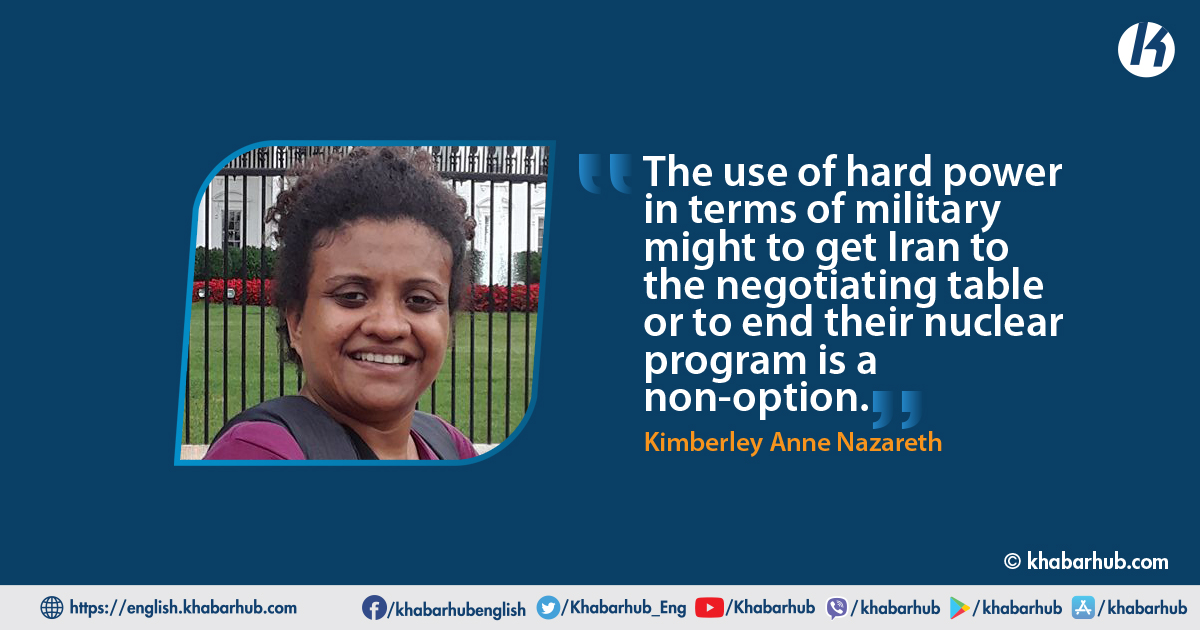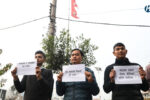The recent announcement regarding the renewal in negotiations between the US and Iran over the nuclear deal has once again made headlines.
The apprehension over Iran’s nuclear program and US involvement in the negotiations has been a subject of discussion at almost all international meetings.
At the recent G20 Summit, the hope for nuclear negotiations with Iran was brought up. This came in the form of a joint statement by world leaders regarding the stalled negotiations and the US role in the JCPOA.
They stated that “We welcome President Biden’s clearly demonstrated commitment to return the US to full compliance with the JCPOA [joint comprehensive plan of action] and to stay in full compliance, so long as Iran does the same.”
The JCPOA came into being in 2015, after numerous rounds of negotiations between the leaders of the P5+1 and Iran.
It was under the Trump administration that the US walked out of the deal in 2018 thus raising concerns about the legitimacy of the deal as well as Iran‘s future role concerning honoring the tenets of the deal.
In the aftermath of the withdrawal, the US reimposed sanctions on Iran as per the pre-deal era and they are harsher in some respects as countries that have agreements with Iran were also threatened with sanctions.
Joe Biden as a member of the Obama White House, candidate for the presidency (2020) and as president, has tried to push for the US re-entry into the JCPOA.
Making any headway with Israel is going to be an uphill battle given the historic hatred on both sides, add to this Tehran’s support for Hamas and Hezbollah make any kind of rapprochement impossible.
However, Iran’s non-compliance with the deal has made this difficult together with their ballistic missile tests as well as their regional posturing.
As per the September 2021 IAEA report, Iran has been enriching uranium at levels significantly higher than allowed under the 2015 deal, Iran has also impeded international inspectors from tracking facilities. Tehran had also failed to cooperate with the IAEA investigation into traces of uranium at undeclared sites.
Though Iran continues to state that the nature of the nuclear program is purely civilian and has no interest in seeking a nuclear weapon; their actions vis-a-vis enrichment paint a different story.
If Iran were to gain access to a nuclear weapon, Tehran would need to attach the warhead to an effective delivery system. Here is where their ballistic missiles program would aid them.
The report depicts a security crisis for the US regional strategy, with Iran increasing enrichment it reduces its breakout time. This will surely affect the regional balance and the US role.
Additionally, the negotiations with Iran are subject to timing. The US has now more or less withdrawn from Afghanistan and there is a deficit in terms of US power (both hard and soft) and prestige.
The vacuum created by the withdrawal has created an avenue for Iran, this is especially true when it comes to forwarding economic interests for both.
Though negotiations were considered a priority, Afghanistan took up much of the president’s time on matters pertaining to foreign and security policy.
The withdrawal has also created a need for a win for the administration’s so-called flailing foreign policy prior to the midterm elections next year.
With regard to Iran, the Biden administration has stated that all options are on the table. However, it is questionable whether they are willing to put this into practice.
At the same time, the administration is investing its political capital in the negotiation process. But Biden is being careful and walking a tightrope of not saying too much but just enough to make negotiations possible and effectively putting the ball in Tehran’s court.
This strategic ploy is important for Biden given his problems at home. The schism between the Democrats and Republicans in Congress has reached its height b, therefore this strategy is an effort to appease both sides of the aisle – the Democrats, who want the deal and Republicans, who want a stricter deal, as well as save face if negotiations don’t come to fruition.
For Iran, the newly imposed sanctions on Iran’s drone program in addition to the array of past sanctions on Iran have to some extent coerced the leadership to begin the negotiation process.
The West has made it clear, sanction alleviation will only be discussed if Iran agrees to comply with the deal (according to statements made by the US and European leaders).
On the other hand, one can argue, it is easy to see that though these sanctions have crippled the Iranian economy they are treading lightly which raises the question as to whether coercive tactics like sanctions change the behavior of states.
In addition to the sanctions, previous backers of the regime are now ambivalent about their support towards Tehran. Beijing has been reluctant to be too overt in its direct financial support for Tehran, given the unexpected tough line taken by the administration.
In addition, Russia, too, is unwilling to sacrifice its relations with the Middle East for the sake of its relations with Iran; this specifically relates to the extension of the 20-year agreement between the two.
The IRGC who provides support to the Supreme Leader and is responsible for conjuring support for the regime as well as expanding Iran’s influence within the region is facing a crunch when it comes to funding its international network of proxies.
The regional players play an important role in making or breaking the deal. These players, especially Israel, possess a great deal of domestic clout in the US. US allies like Saudi and Israel among others play a vital role; it is probably a reason for Tehran’s outreach to regional heavyweights like Saudi Arabia.
The thaw in Iran-Saudi relations has begun recently with the Raisi administration. Though bilateral talks seem to be at a stalemate they have nevertheless begun.
On the other hand, a relation with the US’s other ally – Israel seems to be as sour as ever. Israel is committed to preventing a nuclear Iran and its position on the nuclear agreement has not changed. They do support the West’s constructive engagement with Iran; however, the outcome of such engagement should lead to a better deal than the 2015 deal.
In addition, the multilateral, negotiating approach is the only approach that US allies are looking for. As the JCPOA is still in place, the use of military force will be difficult as it will draw the US, the region into a long-drawn-out war that will definitely lack support in the Security Council.
Making any headway with Israel is going to be an uphill battle given the historic hatred on both sides, add to this Tehran’s support for Hamas and Hezbollah make any kind of rapprochement impossible.
It is under these circumstances and the regional environment that Israel is moving to strike agreements with regional countries. This is mostly in matters pertaining to trade but nevertheless is important.
Regional fears of Tehran will play a role both at the international and domestic levels. The US will, like in the past, have to promise security measures to its regional allies.
For the Biden Administration negotiating with Iran is sometimes considered not only the best option but the only option.
The use of hard power in terms of military might to get Iran to the negotiating table or to end their nuclear program is a non-option.
This is a result of regional difficulties as well as embroiling the US further in the region and opening the US allies as well as Washington to further attacks by terrorists and terrorist organizations.
In addition, the multilateral, negotiating approach is the only approach that US allies are looking for. As the JCPOA is still in place, the use of military force will be difficult as it will draw the US, the region into a long-drawn-out war that will definitely lack support in the Security Council.
The author has a Ph.D. from the School of International Studies, JNU. She was a Fulbright-Nehru Doctoral Fellow 2017-2018 at the American University Washington D.C. Her area of interest is US-Iran relations.









Comment